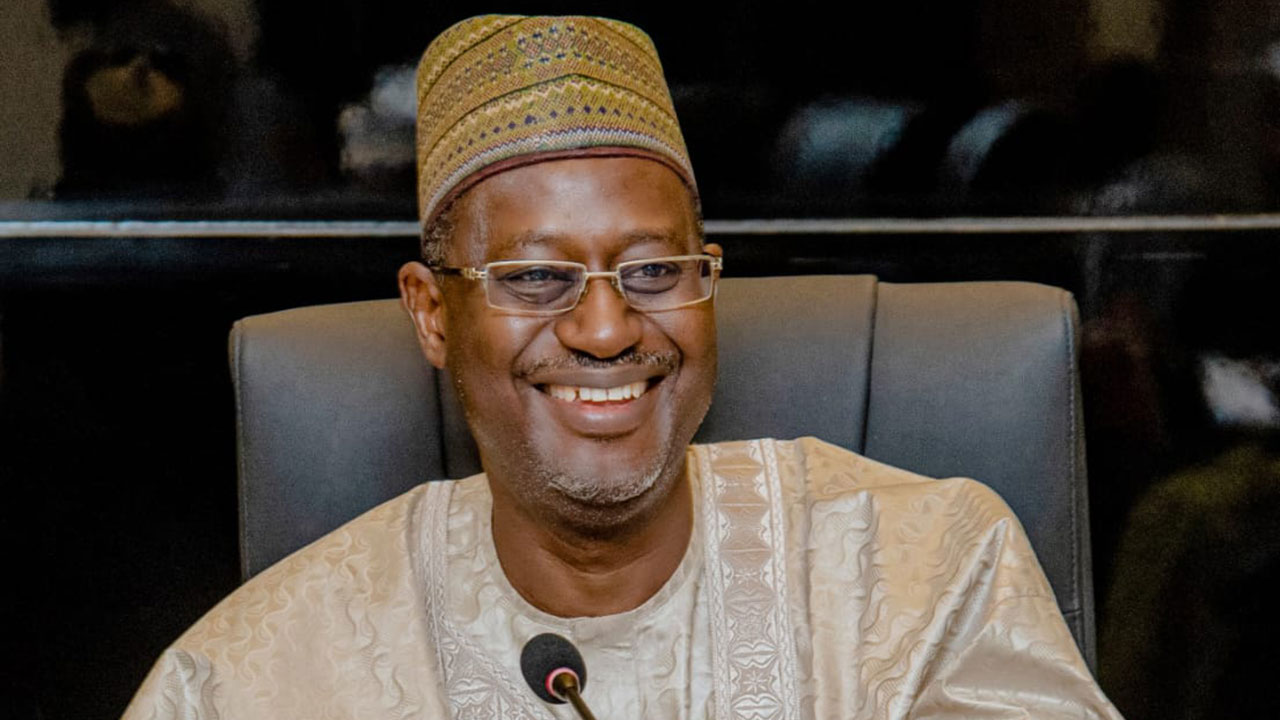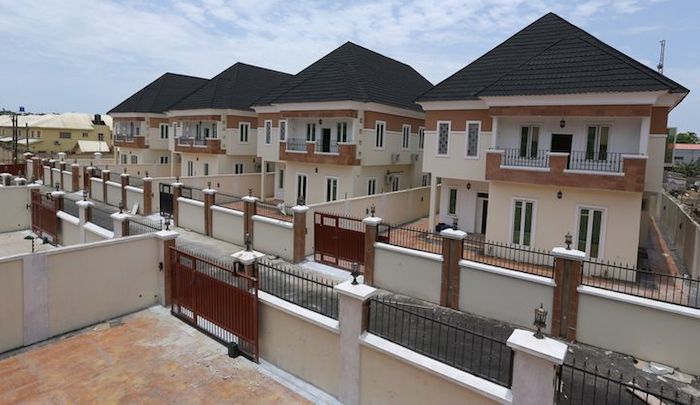
Experts foresee investor apathy in real estate sector ahead of elections
Due to unfavourable policies and the inflation crisis in the economy, there are predictions that the 2023 Nigerian general elections could worsen the challenges in the construction and building industry.
Cumulatively, inflation has risen to 17.7 per cent in the past six months, with the naira going down against the dollar at N615 in the parallel market and N415 at the inter-bank rate. The building industry, which also relies on the importation of some material components, has been exposed to price fluctuations.
High costs of building materials forced many developers and independent builders to abandon projects. Political actors are committing more funds to electioneering campaigns than investing in critical sectors like housing, while many infrastructural projects are technically stalled.
Only state governments few state governments are still in the business of delivering housing units while others have shifted focus to winning elections.
In the past six months, many developers and institutional investors have slowed down on investment in housing due to political uncertainty. Investor confidence is weakened as they await outcomes of the elections slated for February and March 2023.
Interest rates were on the rise, further reducing buying capacity and eroding interest in long-term funds for property development and purchases. Across the real estate value chain, access to land has been difficult and finance for affordable housing is a big issue. The sector is also encumbered by high mortgage rates.
Despite the odds, the real estate sector shows resilience in the first half of the year according to the National Bureau of Statistics (NBS) report. The sector contributed 5.34 per cent to real Gross Domestic Product (GDP) in Q1 2022, higher than the 5.28 per cent it recorded in the corresponding quarter of 2021.
The GDP shows sustained positive growth and an improvement in economic performance for the sixth consecutive quarter since the recession witnessed in 2020 when negative growth rates were recorded in quarters two and three of 2020 respectively.
However, housing supply remains in a state of constant undersupply as population and demand continue to outpace supply with the deficit as high as over 17 million in the affordable segment of the market.
Expounding on the situation, council member of the Nigerian Institution of Estate Surveyors and Valuers (NIESV), Prof. Austin Otegbulu, said the housing sector is highly influenced by property market dynamics, which oscillates in response to economic or business cycles.
He said the nation’s political system is unpredictable, hence there is always the notion that the general election could trigger violence and an unfavourable investment climate.
Otegbulu observed that many people will want to sell their property and relocate, adding that politicians vying for electoral positions and those sponsoring candidates may need to raise the required fund by selling houses with the hope of buying new ones if they win the elections.
“The cumulative effect of this is that it changes the market by creating an imbalance due to oversupply. The effect of supply and demand imbalance coupled with a decline in economic activities leads to decline in property prices.”
He argued that in this situation, investors who are not risk-conscious take advantage of this to buy while those that averse to risk will avoid investing in real estate.
“They prefer to keep their money in the bank. Some school of thought are of the opinion that the property market will bubble under this scenario. I believe that such views run against logic as most foreign and local investors will avoid investing under conditions of uncertainty and political instability. We must realise that we are part of the global property market,” he said.
Major evidence of a matured property market, Otegbulu said, is its ability to attract direct foreign investment.
The Project Director, Arctic Infrastructure, Mr Lookman Oshodi, said the pre-election period is a season that witnesses many real estate assets in the market as the electioneering process is a money-driven venture. Aspirants for different positions, he said, will require cash to incentivise voters, hence disposal of assets to obtain cash where possible at below market rates.
He explained that depending on the class of investors, there are some that hold assets for the short-term and dispose of for marginal profits, while others acquire the real estate assets, and convert to other uses to recoup their investments. These categories, he said, face minimal risks in a period like this.
He said: “Electioneering period impacts housing as governors who are seeking re-election will want to increase the production of new housing units to convince the electorate on their sincerity to do more after re-election. Not many low-income earners will become new homeowners but the impact will be more among the medium-to-high-income earners since the mortgage system is not yet a mass appeal.
“Real estate investors who want to hold assets on a long-term basis are generally conscious of political risk and often take back seats in this period. Instalment payments approach for assets and lending with real estate collateral are usual at this period.”
According to him, the view that the real estate will be bubbling as politicians offload properties into the market is real, adding that the period is for uptake market activities on real estate.
Oshodi who is also the former Vice Chairman of the Nigerian Institute of Town Planners (NITP), Lagos chapter, said clarity and policy direction from the next government will go a long way to restore investors’ confidence in the housing and real estate sector.
He said it is not only policy direction that is needed in the sector but the capacity to implement the existing housing policy and translate it into adequate and sustainable housing for the vast majority of the citizens.
“Investors want to be sure that the number is backed up by adequate purchasing capacity, which the next government needs to address. Regeneration of brownfields in our large cities must be a priority, as this will create viable markets for investors and a sustainable housing system for the people. ‘Win-win’ situation for the stakeholders.”
The past chairman, Royal Institution of Chartered Surveyors (RICS), Nigeria Chapter, Gbenga Ismail, said housing hasn’t taken a back seat yet, but in an election year, prices of property go up because there is money in some people’s hands to buy the property and at the same time, people sell their assets to finance elections.
Ismail, who is NIESV Vice Chairman, Lagos branch said: “I have not seen any one of them yet unveil plans for housing but we hope when the campaigns start in full, we will see that. I want to see how they will tackle the affordability issues and easy access to property and mortgage finance and development. It is important for them to identify how they would make people have access to housing because it is a big problem that needs necessary action. The same way that we say power is a problem, housing is also a problem.”
On his part, a past chairman, of NIESV’s Faculty of Estate Agency and Marketing, Mr. Sam Eboigbe, said the electioneering period has obviously affected the real estate sector in some notable way as campaigns attract a huge flow of funds.
This dimension of injection of funds in local and foreign currencies, Eboigbe said has become unprecedented lately in Nigeria, as most of the political contestants require enormous funds to prosecute their intentions.
He said: “Real estate sector contributes a huge flow of funds to campaigns since most of the participants and their sponsors are investors in the real estate sector. For ease of liquidity, prices respond to the market and adjust downwards as the volume of listings in terms of the gamut of the supply chain are far in excess of demand.”
“It is an economic principle that prices will realistically adjust themselves in relation to demand over time. Also, lack of confidence as no one could predict the direction of the economy. So much anxiety as people expects a major shift in governance and policies. At the moment, the fluctuating nature of the naira against the dollar is also making the sector lose confidence.”
He said when prices are going down and the cost of building materials are high, that means there will be low activities as developers will have a ‘sit down look’ apathy.
“ When there is a lull in business activities and the trend is consistent over time, this will generate a lack of motivation for developers or investors in the market space. There is this issue of capital flight as stakeholders create room for the inevitable. They throw their properties into the market space. Upon consummation of transactions, the proceeds are deployed to purchase the dollars or reinvested elsewhere until such a time they feel it is safe to acquire properties. lt is usually not unlikely to find investors halt activities on site leading to the abandonment of projects.”
He noted that some investors use the electioneering period to acquire properties, and take advantage of the opportunities, especially those offerings and listings below the market value.
“They understand the market dynamics and have analysed the market over time to know the specific and choice locations and type of listings to increase their portfolios. These categories of investors are usually not many,” he said.
According to him, foreign investments into the sector are usually not attractive during this period, as there are all kinds of forecasts with unhealthy and unfortunate headlines, which have the tendency to scare investors away.
Eboigbe called for a comprehensive proposal for the recovery of the housing market and managing interest rates by contestants in the election. He stated that it should be understood that insecurity and economy are areas where Nigeria is facing serious challenges but stressed that leaders must not underestimate the housing sector too.
He said: “When we exit inflationary trend and the naira is strong, then issues of housing and interest rate will similarly and ultimately adjust accordingly. I think no serious political candidate can afford not to have a realistic policy on the recovery of the housing market.”
Source:Guardian
Similar Topics
US Election Race Intensifies: How Results Could Impact Nigeria’s Real Estate Market As the...
a month ago Read MoreEquatorial Guinea Official Baltasar Engonga Ebang’s Video Sparks Controversy In recent days,...
a month ago Read MoreNigeria’s digital real estate company, Sytemap, has raised concerns over the ongoing trust...
2 months ago Read MoreGovernor Babajide Sanwo-Olu of Lagos State has urged for more investment to address the persistent...
2 months ago Read MoreHousing sector stakeholders have raised concerns that the rising interest rates in the country are...
2 months ago Read MoreLagos State Governor, Babajide Sanwo-Olu, has emphasized the significance of innovation,...
2 months ago Read MoreThe Association of Private Practicing Surveyors of Nigeria (APPSN), a subgroup of the Nigerian...
2 months ago Read MoreNigeria has been admitted into WorldSkills International, marking a historic milestone in the...
3 months ago Read MoreThe Federal Government has launched the Ministry of Finance Incorporated Real Estate Investment...
3 months ago Read MoreThe National Board for Technical Education has inaugurated the Sector Skill Council for...
3 months ago Read MoreThe Environmental Defense Fund has partnered with Africa Practice to combat climate change in...
3 months ago Read MoreThe Minister of Housing and Urban Development, Ahmed Dangiwa, has reiterated the crucial role of...
3 months ago Read MoreThe Real Estate Developers Association of Nigeria has announced initiatives aimed at enhancing...
3 months ago Read MoreThe Global Environment Facility has approved $3.28m to tackle land degradation in Kebbi State under...
3 months ago Read MoreThe commercial real estate market is currently grappling with several major challenges, including...
3 months ago Read MoreReal estate development is a key driver of economic growth in any region, and Africa is no...
3 months ago Read MoreThe Federal Government has signed a Memorandum of Understanding with Shelter Afrique...
3 months ago Read MoreThe Federal Government has issued a 90-day deadline for subscribers of the National Housing...
3 months ago Read MoreThe Minister of Housing and Urban Development, Ahmed Dangiwa, has disclosed that plans are underway...
4 months ago Read MoreA real estate firm, Gestpoint Nigeria Limited, has implored the Federal Government to simplify the...
4 months ago Read More
















